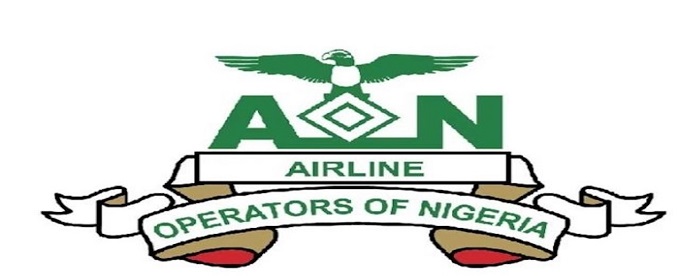News
Airline Operators Call Off Planned Suspension of Flights

Airline Operators of Nigeria (AON) have called off their planned suspension of flights which was billed to commence today (Monday, 9 May).

The association announced that it was postponing the decision due to national economic and security concerns.
Abdulmunaf Sarina, president of the AON, announced the suspension on Sunday in a statement signed by six members of the organization.
Abdulmunaf, also managing director of Azman Air, Shehu Wada, executive director of Max Air, and Obiora Okonkwo, the chairman of United Nigeria Airlines, were among them.
Roy Ilegbodu, CEO of Arik Air, Abdullahi Mahmood, CEO of Aero Contractors, and Allen Onyema, chairman of Air Peace were the other signatories.
The Ministry of Aviation had previously told Nigerians that AON members were evaluating their decision to stop flying on Monday, May 9.
It confirmed that Ibom Air, Green Africa Airlines, Arik Air, Dana Air, and some other airlines declared they will be flying as usual.
The statement from the airlines reads, “The Airline Operators of Nigeria (AON) wishes to inform the general public that further to numerous calls from the highest echelons in government with promises to urgently intervene in the crises being faced by airlines due to the astronomic and continuously rising cost of JetA1, that the AON has acceded to requests to withdraw the action for the time being while we allow for a fresh round of dialogue with government in the hope of reaching an amicable solution.
“We have also reached this decision with the highest consideration for our esteemed customers who have been faced with uncertainty over the last few days and to enable them to have access to travel to their various destinations for the time being during the period of discussions with relevant authorities.
“In view of the above and in the interest of national economy and security considerations, AON hereby wishes to notify the general public that the earlier announced shutdown of operations on May 9, 2022, is hereby suspended in good fate pending the outcome of hopefully fruitful engagement with government.”
News
LG Nigeria Begins Nationwide Search for Oldest Working TV, Rewards Loyalty with AI QNED Upgrade

LG Electronics has announced the launch of a nationwide campaign aimed at celebrating decades of customer loyalty and technological heritage by searching for the oldest still-functioning LG television sets across the country.

The initiative, themed “The Oldest LG TV”, seeks to honour long-time customers whose LG screens have stood the test of time, while introducing them to the future of home entertainment through LG’s advanced AI QNED TVs.
For generations, LG televisions have been more than an electronic device in Nigerian homes, they have been silent witnesses to family milestones, cultural moments and shared memories.
This campaign bridges nostalgia with innovation, acknowledging the emotional connection Nigerians have built with the brand while showcasing LG’s leadership in AI-powered display technology.
The campaign features a storytelling -driven narrative that highlights community, heritage and the evolution of viewing experiences. Participants are invited to share the stories behind their long-serving LG TVs, transforming everyday screens into symbols of trust, resilience and innovation.

In creative twist, the campaign also introduces LG’s AI-enabled televisions as responsive companions that understand viewer preferences, recommend content and enhance picture quality in real time. This shift from nostalgia to futuristic interactivity underscores LG’s continued commitment to delivering smarter, more personalized entertainment solutions.
To participate, simply visit https://lgsearchcampaign.vercel.app/, upload a photo or video of your old LG TV and share the story behind it – how long you’ve had it and the memories it holds.
The winner walks away with a brand-new LG AI QNED TV, effectively trading legacy for luxury.
At its core, this campaign reminds us that technology is not only about pixels and processors, but about people. It’s about the laughter in the living rooms, the silence during tense match moments and the comfort of family routines.
By celebrating the oldest TVs still standing strong, LG is celebrating the people who kept the on, families who trusted the brand through changing times and evolving technologies. In doing so, LG isn’t just upgrading television, it’s upgrading memories into the future.
According to Mr. Choongbae Seok, General Manager, Media Entertainment Solutions, LG Electronics Nigeria, “The journey from our classic CRT Televisions to today’s AI QNED technology reflects how far both our customers and our innovation have come. Those early sets were built to last, and many are still functioning today, a testament to durability and consumer trust. This initiative allows us to honour that legacy while introducing a new era of intelligent viewing, where the screen does more than show content; it adapts, learns and enhances every moment”.
LG Display 2026 TV Models at InnoFest
LG Electronics (LG), a leader in AI-powered solutions for the home, outlined plans to accelerate growth in emerging markets at LG InnoFest 2026 MEA. The event, held in Abu Dhabi, provided a forum to share LG’s strategic direction and market outlook with regional partners. At the exhibition, LG displayed its premium 2026 AI TV lineup focusing heavily on advanced processing power, smarter picture and sound technologies. The flagship OLED evo G6 and 100-inch Micro RGB evo TVs are powered by the new Alpha 11 AI processor Gen 3 enabling faster and more intelligent performance. The OLED evo W6 Wallpaper TV, an ultra-slim television designed to sit flush against the wall like artwork uses true wireless connectivity, reducing cable clutter and creating a cleaner, minimal setup.
News
African Leaders Highlights Africa’s AI Ambitions

African leaders used the AU Summit in Addis Ababa over the weekend to sharpen the continent’s technology agenda, with Ethiopia positioning artificial intelligence (AI), digital infrastructure and connectivity as pillars of Africa’s economic future.

Opening the 39th African Union Summit, Ethiopian prime minister Abiy Ahmed outlined an ambitious vision to place Africa at the forefront of the global AI race, anchored by Ethiopia’s plan to launch what he described as Africa’s first AI-focused university.
“In 2020, Ethiopia established Africa’s first Artificial Intelligence Institute. Building on this foundation, we are preparing to launch an AI university anchored in the philosophy of Medemer, purposeful collaboration, to unite human values with machine intelligence and position Africa as a global leader in the age of intelligence,” Abiy told delegates. “
He framed AI not as a standalone sector, but as a cross-cutting enabler for governance, industry and social development. “Every river we manage, every city we design, and every digital platform we deploy must generate resilience, opportunity and dignity,” Abiy said. He further linked digital transformation to Agenda 2063’s long-term prosperity goals.
Beyond AI, the high-powered AU summit discussions highlighted digital identity, cross-border connectivity and telecom expansion as critical building blocks for an integrated African market. Ethiopia’s Digital Ethiopia 2030 roadmap, including its Faida digital ID ecosystem, was cited as a model for secure, interconnected public services.
Abiy pointed to aviation and telecom infrastructure as key accelerators for economic development across the continent. “Through Ethiopian Airlines, we connect people and markets. Ethio Telecom is expanding partnerships across Africa to bridge the digital divide,” he said.
The Ethiopian leader added that large-scale infrastructure projects are designed to anchor Africa deeper into global value chains.
The broader summit tech agenda also touched on regulatory harmonisation, digital trade and data governance, with leaders emphasizing that continental cooperation is essential to avoid fragmented digital markets.
UN Secretary-General António Guterres underscored the need for inclusive innovation, telling delegates that Africa’s digital rise must be “people-centered and opportunity-driven,” while African Union Commission Chair Mahmoud Ali Youssouf stressed coordinated policy frameworks to accelerate adoption.
“AI capability, digital infrastructure and unified regulation are no longer optional ambitions, but strategic imperatives shaping the continent’s competitiveness in the intelligence era,” he said.
News
NITDA Explores Partnership with Trust Stamp on Digital Trust and Innovation

By Naeemah Junaid
The National Information Technology Development Agency (NITDA) has held strategic discussions with representatives of Trust Stamp, a NASDAQ-listed global technology company, to explore potential areas of partnership aimed at strengthening Nigeria’s digital trust framework and advancing innovation within the digital economy.

The meeting, chaired by NITDA Director General, Kashifu Inuwa Abdullahi, focused on identifying collaborative opportunities aligned with Nigeria’s digital transformation agenda and the Agency’s strategic priorities for building a secure, inclusive, and innovation-driven digital ecosystem.
Inuwa emphasised that trust remains a critical foundation for the growth of the digital economy, noting that secure systems and strong cybersecurity frameworks are essential for driving innovation, economic growth, and national development. He stated that building trust in digital platforms and services is key to accelerating adoption and unlocking opportunities across sectors.
He reiterated NITDA’s mandate as a regulator to create an enabling environment through forward-looking policies and regulatory frameworks that support innovation rather than promote specific technologies. According to him, government interventions are designed to stimulate markets, create opportunities, and empower both businesses and citizens to participate fully in the digital economy.
The Director General further reaffirmed Nigeria’s openness to investments that strengthen digital infrastructure and enhance digital services, stressing that sustainable national development is best driven by private sector participation under supportive regulatory and policy frameworks. He called for continued engagement to ensure alignment with national priorities and effective integration into Nigeria’s digital ecosystem.
In his remarks, Trust Stamp Vice President, Jonathan Pasha, highlighted the company’s global experience in secure verification and trust technologies, describing its approach as partnership-oriented and focused on delivering long-term value within local ecosystems. He noted that the company prioritises collaboration with governments and private sector stakeholders to address local challenges and expand access to secure digital services.
Pasha referenced Trust Stamp’s ongoing operations in Nigeria, including its collaboration with a telecommunications provider to enhance SIM swap prevention and fraud detection capabilities. He also outlined the firm’s biometric tokenisation technology, which converts biometric data into secure, privacy-preserving representations, enabling verification processes without exposing sensitive information.
He explained that the technology supports secure verification, fraud prevention, financial inclusion initiatives, and the tokenisation of real-world assets, while being designed to function effectively in low-connectivity environments and on low-specification devices to expand access to digital services.
Both parties expressed interest in advancing technical-level discussions to identify specific areas of collaboration aligned with national priorities and Nigeria’s digital transformation objectives.
NITDA reaffirmed its commitment to fostering a secure and trusted digital economy through strategic partnerships, robust regulatory frameworks, and initiatives that promote innovation, inclusion, and sustainable growth.

 General News1 day ago
General News1 day agoNigeria’s Banks Race to Meet CBN Recapitalisation Deadline Amid Verification Push

 General News1 day ago
General News1 day agoJumia Targets Break-even in 2026 After Strong Q4 Surge

 General News1 day ago
General News1 day agoBOI, MTN Foundation Unveil N1Bn Fund for Women Entrepreneurs

 General News17 hours ago
General News17 hours agoUBA Unveils Diaspora Platform to Connect Global Africans with Investment, Wealth Opportunities

 E-Financial1 day ago
E-Financial1 day agoNo VAT on Land, Buildings and Rent Under New Tax Law — Oyedele

 E-Financial1 day ago
E-Financial1 day agoIs Nigeria Borrowing to Survive or to Build?

 E-Financial1 day ago
E-Financial1 day agoCBN Slams Up to N10m Fine on Banks and Cheque Printers for Security Breaches

 General News10 hours ago
General News10 hours agoLeo Stan Ekeh Foundation, Zinox Group To Invest 10B on 1000 University Tech Scholarships for Indigent Nigeria Wiz-kids


























